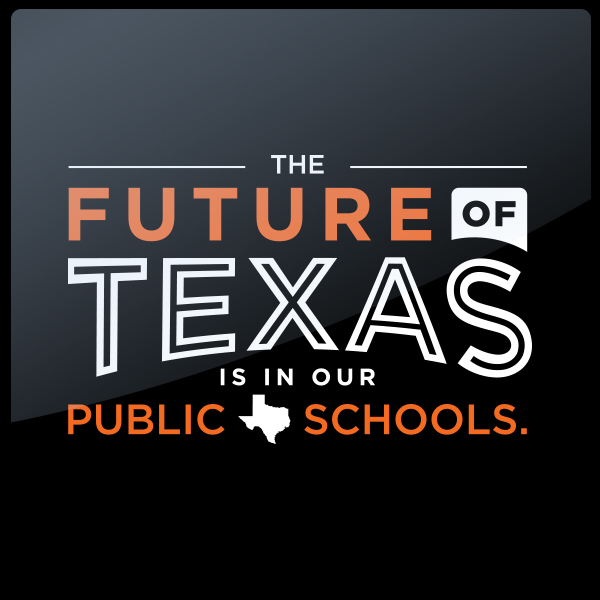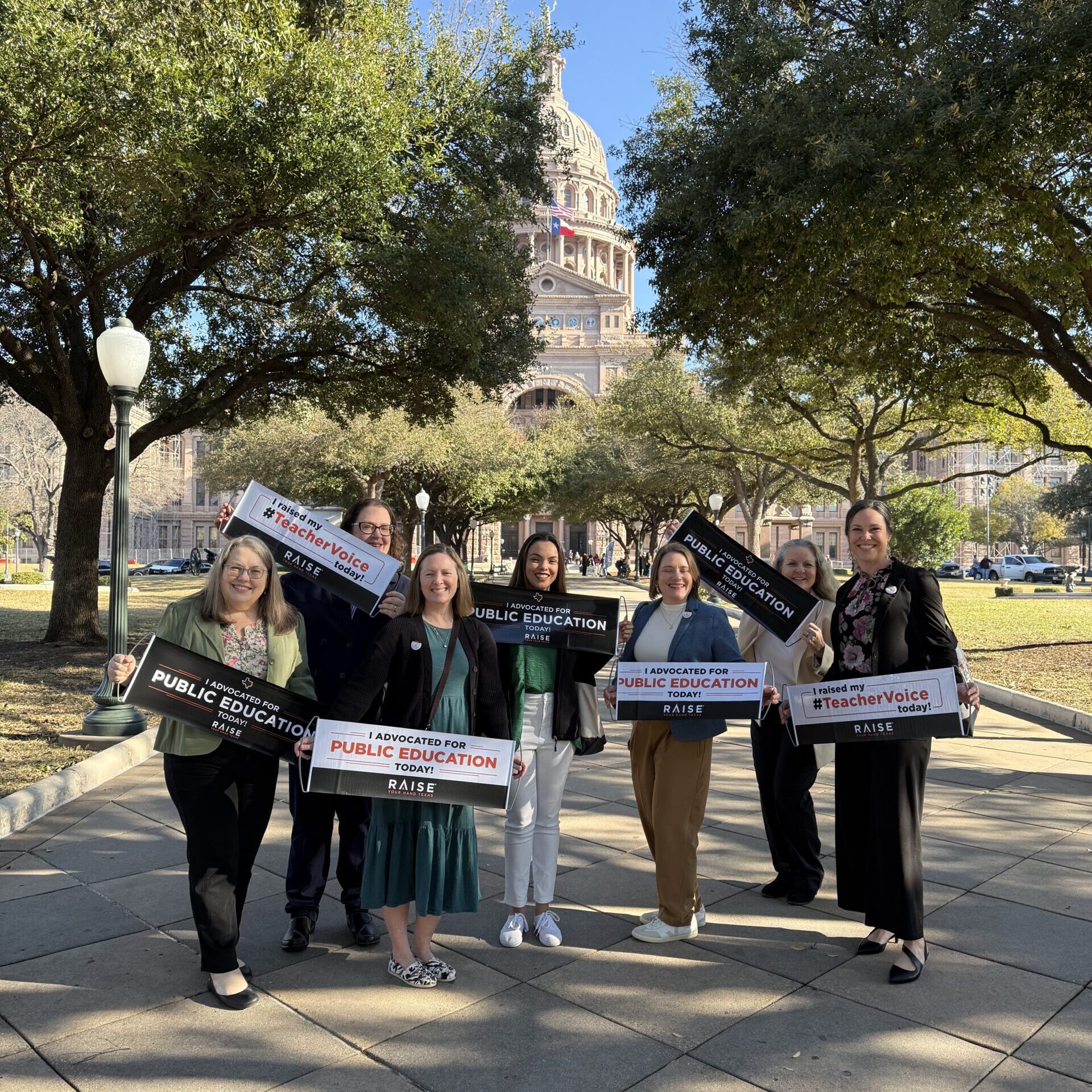
categories
Across the Lawn – November 2, 2023

November 02, 2023

Raise Your Hand Texas has a front-row seat to the Capitol. From our vantage point, public education policy issues have never been more important, and this is why we must make every session a public education session.
One Thing to Do: VOTE and Have Your Voice Heard
Early voting for the November constitutional election ends Friday, November 3. There are several important ballot measures that will impact public education and some that will support our schools. Most notably, Proposition 9 would provide a cost of living adjustment for retired teachers for the first time in nearly 20 years. Be sure to have your voice heard in this and every election, because public education is always on the ballot.
Find your polling place(s) and make your plan to vote today. Election day is Tuesday, November 7. Polls are open from 7 a.m. to 7 p.m. on Election Day.
Four Things to Know
1. Vouchers and Education Legislation Stall in Texas House with Only Days Left of the Third Called Special Session
With November 7th being the last day of the third called special session, it is unlikely there will be any movement on vouchers or any other education-related legislation within the next four days. SB 1 (vouchers) and SB 2 (teacher pay and funding) were both passed by the Senate and received in the House, but never were scheduled for a hearing.
There was anticipation the House was going to file and potentially hold a hearing on new voucher and school funding legislation on Wednesday night in light of some of the remarks in the previous days by Governor Abbott. But when members reconvened late Wednesday, Speaker Phelan stated members would not return again until next Monday or Tuesday (the last two days of the special session) to deal with potential border security legislation.
Rep. Buckley, Chair of the House Public Education Committee and the House Select Committee on Educational Opportunity and Enrichment, stated, “The House has rules and we are up against the timeline.”
The potential framework for a new House bill was detailed in the October 31 proclamation issued by Gov. Abbott’s proclamation, which expanded the call of the special session.
2. Gov. Abbott Expands the Special Session Call to Include Teacher Pay, School Funding, and Special Education
On October 31, Gov. Abbott released a proclamation expanding the agenda of the third called Special Session. The Governor stated, “Working with Speaker Phelan and his House leadership team, the Speaker and I reached an agreement on school choice for Texas families, and I am expanding the agenda for Special Session #3.”
According to the press releases the legislation will:
- Create an education savings accounts (ESAs) program with universal eligibility for all Texas schoolchildren. Participating students will be eligible for approximately $10,400 per year in their education savings account.
- Provide billions more in public education funding,, including teacher pay raises, while staying within the constitutional spending limit.
- Codify recommendations made by the Teacher Vacancy Task Force, the Commission on Virtual Education, and the Commission on Special Education Funding.
- Phase out the STAAR test and replace it with an improved assessment system.
View the Governor’s expanded special session proclamation.
Raise Your Hand Texas believes the priorities of any education legislation should focus on funding our public schools, attracting and retaining high quality teachers, and improving both the STAAR assessment and A-F accountability system.
Double-digit inflation means the basic allotment needs to increase by $1,100 just to give schools the same purchasing power as 2019. Teacher pay needs to increase by at least $7,500 just to keep up with the national average in teacher salaries. And creating a new test does not mean the state has changed how the test is weighted in our state’s A-F accountability system. Our students are more than just one test on one day and until the accountability system de-emphasizes the test and adds other important indicators (AP and dual credit classes, fine arts, extracurricular activities) it will still just be a high-stakes test.
3. Judge Temporarily Blocks the Texas Education Agency from Releasing A-F School Ratings
A district judge in Travis County issued a temporary injunction order on October 26 prohibiting the Texas Education Agency from issuing A-F accountability ratings for the 2022-23 school year. The Texas Education Agency appealed this ruling to the Third Court of Appeals the following day and is awaiting a decision.
Under the proposed rules being challenged, TEA will increase the scale score for how it calculates college, career and military readiness indicators (CCMR), which make up a significant portion of a high school campus accountability A-F letter grade. It’s important to note that the data used for CCMR scores actually lag by a year, meaning TEA will use data from students that graduated in 2022 to calculate the A-F ratings for 2023.
4. Texas Education Agency Posts Final 2023 A-F Accountability Manual on October 31
The Texas Education Agency has posted the 2023 Accountability manual, a 307 page guide on how to calculate school and campus A-F ratings. TEA states:
- The final manual, which was filed on Wednesday, October 25th, is now posted online. The manual is the result of two years of stakeholder feedback, a posted framework in January 2023, and feedback collected from the proposed rule posted in May.
- The issuance of A-F ratings under this final rule is pending and subject to change based on judicial rulings or decisions from the 88th Legislature during a special session.
- The Accountability Manual also covers topics related to designations under the federal accountability system and Results Driven Accountability (RDA), which take effect per the final rule.
TEA also states the manual was delayed to conduct further analyses of growth data and that after gathering feedback from stakeholders, the final 2023 Accountability Manual includes updated STAAR growth goals that were set using a baseline of 2019 rather than the previously proposed baseline of 2019 and 2022.



